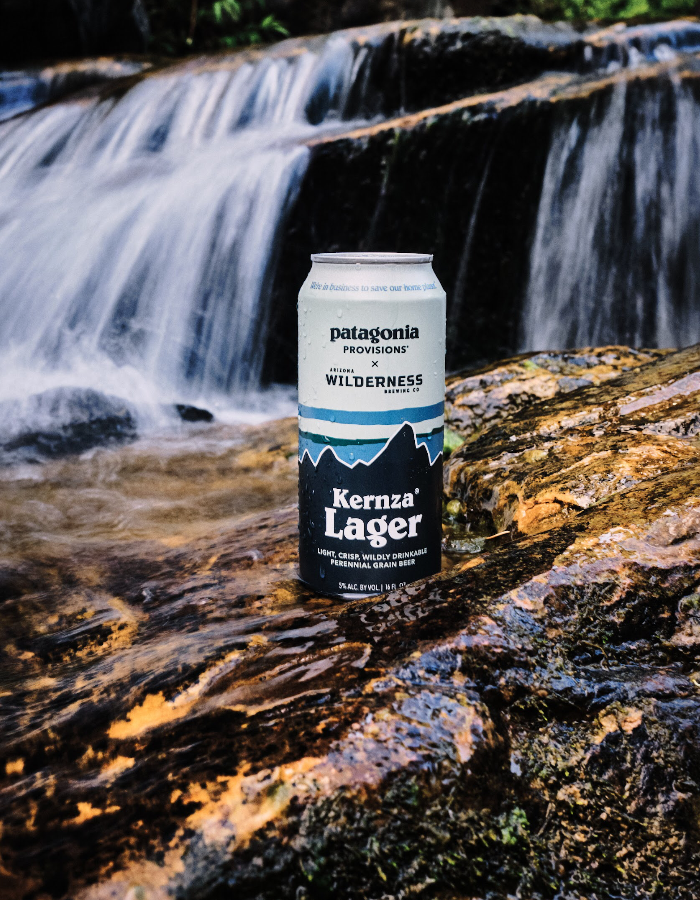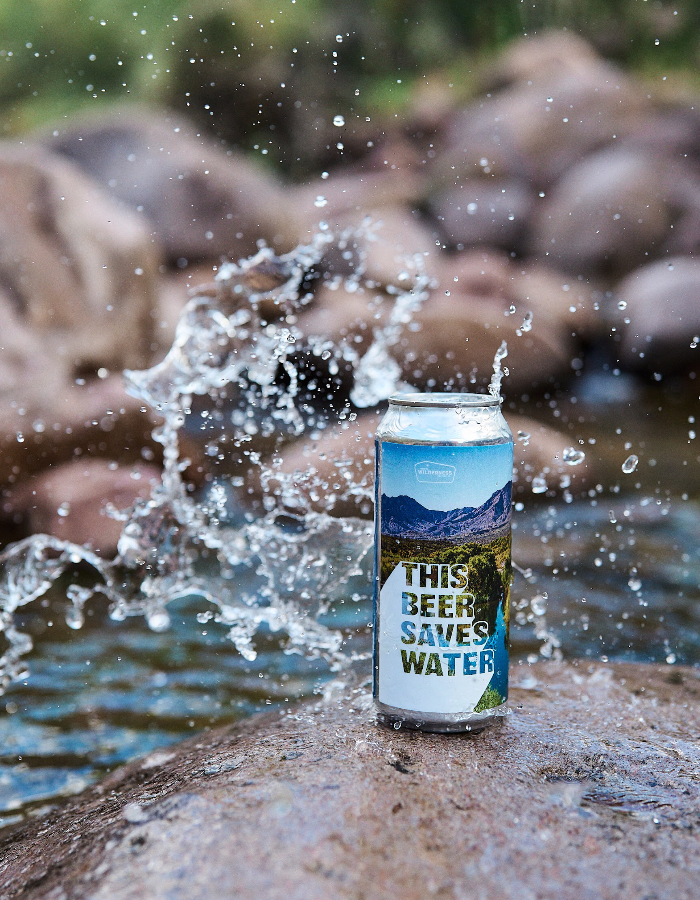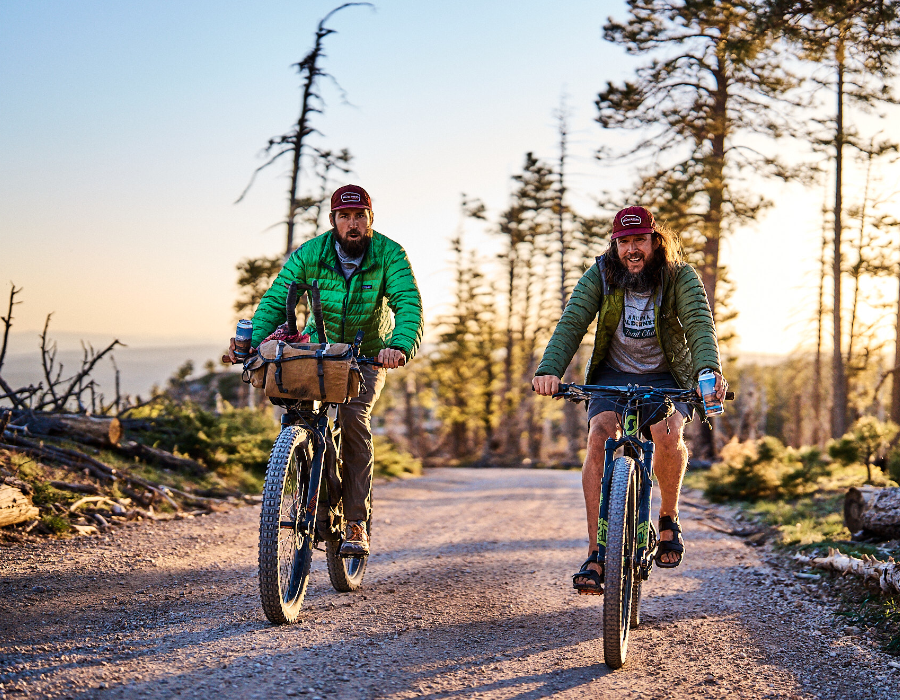By Alison Bailin Batz
The Grand Canyon State is Arizona Wilderness Brewing Co.’s muse.
“And we treat her as such,” said Zach Fowle, head of marketing at Arizona Wilderness Brewing Co. “She serves as our inspiration for ingredients, flavor profiles, and even our artwork, and in return we act as her advocates and protectors.”
 Founded in 2013 and named Best New Brewery in the World by RateBeer.com — largely considered the authority on craft beer — within months of its debut, Arizona Wilderness Brewing Co. is wholly focused on two things: showcasing the diversity of local ingredients and similarly eco-conscious partners through its brews and taking care of the land that provides such a beautiful bounty.
Founded in 2013 and named Best New Brewery in the World by RateBeer.com — largely considered the authority on craft beer — within months of its debut, Arizona Wilderness Brewing Co. is wholly focused on two things: showcasing the diversity of local ingredients and similarly eco-conscious partners through its brews and taking care of the land that provides such a beautiful bounty.
“Jon, our founder, got the idea to create Arizona Wilderness on a backpacking trip through the outdoors. He wanted to create a company that both celebrated and protected our beautiful and diverse state,” said Fowle.
Just how sustainable is the brand?
“To start, every beer we make uses a base of Sinagua Malt, which is based in the Verde Valley and works with local farmers to switch from high water-use crops like corn and alfalfa to barley, which uses much less water from the nearby Verde River,” said Fowle.
 According to Fowle, this crop-switching saves more than 100 million gallons of water for Arizona’s people and wildlife every year.
According to Fowle, this crop-switching saves more than 100 million gallons of water for Arizona’s people and wildlife every year.
“Every pint of our beer that someone drinks represents more than 50 gallons saved for Arizona’s waterways,” said Fowle.
Arizona Wilderness also partners with R. City, whose mission is to connect residents and businesses to local farming, closing the gap between food and where it comes from, and reducing the amount of food waste entering our landfills.
“They convert our food waste, as well as our napkins, some plateware, and even utensils into compost, and then use that compost to grow crops. Some of the crops they grow make it back into our dishes, creating a true closed loop,” said Fowle.
And that just scratches the surface.
“You know the plastic rings that keep cans of beer together? In their traditional form, they are ultra dangerous to wildlife, especially birds and fish,” said Fowle. “But not ours.”
 Arizona Wilderness uses rings from E6PR, who are pioneering zero-waste packaging solutions tailored for diverse industries. As a result, its rings are 100% compostable and are even edible.
Arizona Wilderness uses rings from E6PR, who are pioneering zero-waste packaging solutions tailored for diverse industries. As a result, its rings are 100% compostable and are even edible.
Beyond protecting wildlife from harmful plastics, Arizona Wilderness also partners with local organizations that promote environmentalism and protect the health of the state’s wild areas. Notably, 2% of sales from the brand’ non-alcoholic IPA, which is cleverly called Arizo[na], are donated to the Arizona Trail Association each year.
“The Arizona Trail Association is the organization that protects, maintains, enhances, promotes, and sustains the Arizona National Scenic Trail, which is a complete non-motorized path from Mexico to Utah, stretching 800 diverse miles across Arizona to link deserts, mountains, canyons, forests, history, communities, and diverse peoples,” said Fowle.
The organization is also preparing to release an IPA called Earth to Beer, which will raise funds for Natural Restorations, a group that organizes monthly cleanups of areas that humans have dirtied with trash and overuse.
Even the brews that do not directly financially impact the environment protect it.
“Kernza Lager, our collaboration with Patagonia, is made with Kernza. A type of wheatgrass, Kernza is special because it’s perennial, meaning it stays in the ground year after year and doesn’t need to be tilled,” said Fowle. “It also grows incredibly long roots – up to 18 feet! – that help maintain the structure and health of soil.”
Several other beers and some of the taproom’s food is made with grain from Oatman Farms, which is Arizona’s only regenerative organic certified farm. Regenerative organic farming methods, from cover cropping and crop rotation to low- or no-till and composting, have the ability to rejuvenate soil and result in far fewer carbon emissions each season.
In addition to Oatman, Arizona Wilderness has about 50 similarly sustainable partners that it uses for sourcing, including Abby Lee Farms, Agritopia Farm, Apple Annie’s Orchard, Arizona Farms Cheese Co., Blue Sky Organic Farm, Crooked Sky Farms, Green Valley Pecan Co., Mortimer Farms, Pinnacle Farms, Queen Creek Olive Oil Mill, Rhiba Farms, and many more.
 For Arizona Wilderness, the future is as bright as it is green. In addition to its current brewpub in Gilbert and beer garden in Downtown Phoenix, Arizona Wilderness recently purchased a building on Phoenix’s historic Miracle Mile, located on McDowell and 14th Street.
For Arizona Wilderness, the future is as bright as it is green. In addition to its current brewpub in Gilbert and beer garden in Downtown Phoenix, Arizona Wilderness recently purchased a building on Phoenix’s historic Miracle Mile, located on McDowell and 14th Street.
“This space will house a taproom, restaurant, and a larger brewhouse that’ll enable us to dramatically increase the amount of beer we brew,” said Fowle. “We are working through approvals and construction now and hope to have the space open to the public early 2025.”
For more information, please visit www.azwbeer.com







